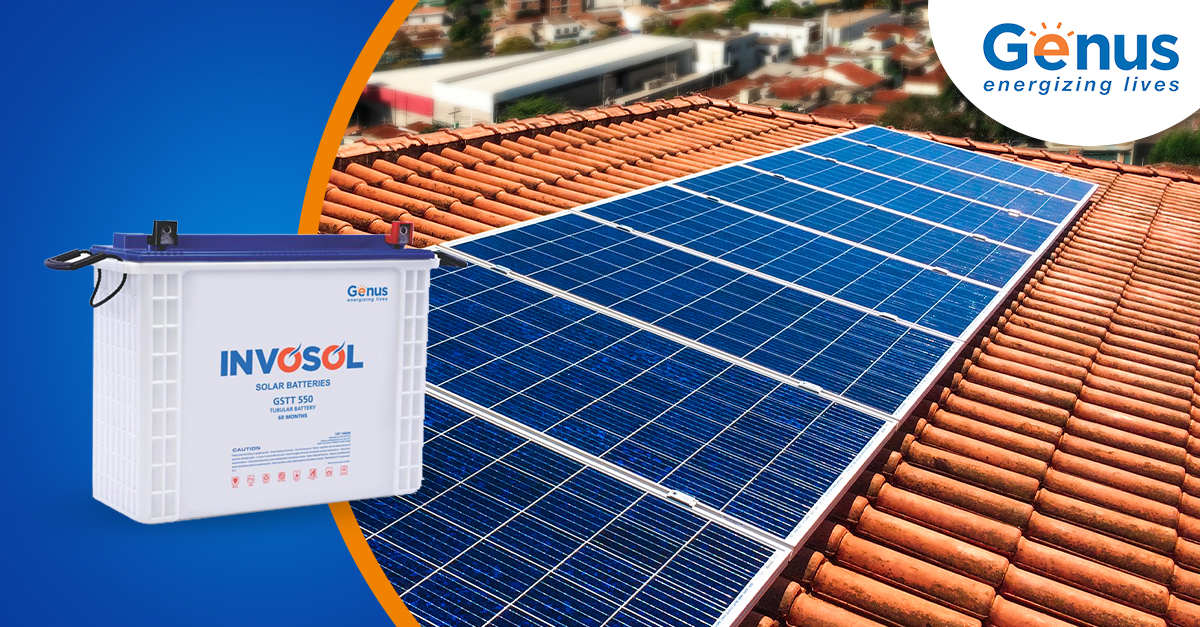Solar Battery Buying Guide —Top Factors To Consider
June 29 03:13:45, 2025
As per a report by the Solar Energy Industries Association, the demand for solar batteries has significantly increased over the past few decades, especially among homeowners and businesses. This surge is mainly due to the unstable power supply in many regions and the growing awareness of the environmental impact of traditional electricity generation methods.
If you're looking to maximize the efficiency of your solar energy system, choosing the right battery is essential. That’s where this comprehensive solar battery buying guide comes in handy. Whether you're new to solar energy or looking to upgrade your current setup, this guide will help you make an informed decision and ensure you get the best value for your money.

**What is a Solar Battery?**
A solar battery is a storage device that captures and stores energy generated by your solar panels. This stored energy can then be used during nighttime, power outages, or when electricity demand is high. It ensures that you have a reliable and continuous power supply, even when the sun isn’t shining.
**What to Look for in a Solar Battery?**
When shopping for a solar battery, there are several key factors to consider:
**Battery Capacity and Power**
The battery's capacity refers to how much electricity it can store, typically measured in kilowatt-hours (kWh) or ampere-hours (Ah). It's important to choose a battery that is stackable, allowing you to expand your system as needed.
Power rating, on the other hand, tells you how much energy the battery can deliver at once, measured in kilowatts (kW). A high-power battery with lower capacity can power your entire home for a short time, while a low-power, high-capacity battery may support only a few appliances for longer periods.
**Depth of Discharge (DoD)**
This measures how much of the battery's total capacity you can actually use. For example, if a 10 kWh battery has a DoD of 90%, you can use 9 kWh before needing to recharge. A higher DoD means more usable energy and better performance.
**Round Trip Efficiency**
This metric shows how efficiently the battery converts stored energy back into usable electricity. If a battery takes in 5 kWh and delivers 4 kWh, its round-trip efficiency is 80%. Higher efficiency means less energy loss and better long-term savings.
**Battery Life and Warranty**
A good warranty is a strong indicator of a battery's quality and reliability. Most warranties are based on the number of charge cycles or the expected lifespan in years. Choosing a battery with a solid warranty ensures peace of mind and long-term value.
**Battery Type**
There are several types of solar batteries available, each with its own advantages and disadvantages:
1. **Flow Batteries**: These use liquid electrolytes and are known for their long lifespan and recyclability. However, they tend to be expensive and require more maintenance.
2. **Lead-Acid Batteries**: A traditional and affordable option, but they are bulkier and slower to charge. They are not ideal for modern, space-constrained setups.
3. **Lithium-Ion Batteries**: Popular for their efficiency, long life, and resistance to overcharging. They perform well in various temperatures but can be harder to recycle.
4. **Tubular Batteries**: A type of lead-acid battery commonly used in areas with frequent power cuts. They are durable and suitable for regions with unreliable grid power.
**Conclusion**
Investing in a solar battery is a smart move that can provide long-term benefits. By considering the key factors discussed in this guide, you can choose a battery that fits your needs, budget, and lifestyle. If you're looking for reliable and high-performance options, brands like Genus offer excellent choices designed for durability and efficiency at a competitive price.